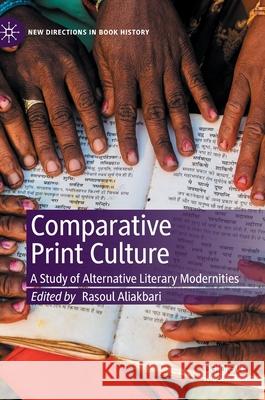Comparative Print Culture: A Study of Alternative Literary Modernities » książka
topmenu
Comparative Print Culture: A Study of Alternative Literary Modernities
ISBN-13: 9783030368906 / Angielski / Twarda / 2020 / 257 str.
Comparative Print Culture: A Study of Alternative Literary Modernities
ISBN-13: 9783030368906 / Angielski / Twarda / 2020 / 257 str.
cena 402,53
(netto: 383,36 VAT: 5%)
Najniższa cena z 30 dni: 385,52
(netto: 383,36 VAT: 5%)
Najniższa cena z 30 dni: 385,52
Termin realizacji zamówienia:
ok. 16-18 dni roboczych.
ok. 16-18 dni roboczych.
Darmowa dostawa!
Kategorie:
Kategorie BISAC:
Wydawca:
Palgrave MacMillan
Seria wydawnicza:
Język:
Angielski
ISBN-13:
9783030368906
Rok wydania:
2020
Wydanie:
2020
Numer serii:
000768722
Ilość stron:
257
Waga:
0.59 kg
Wymiary:
21.01 x 14.81 x 2.24
Oprawa:
Twarda
Wolumenów:
01
Dodatkowe informacje:
Wydanie ilustrowane











